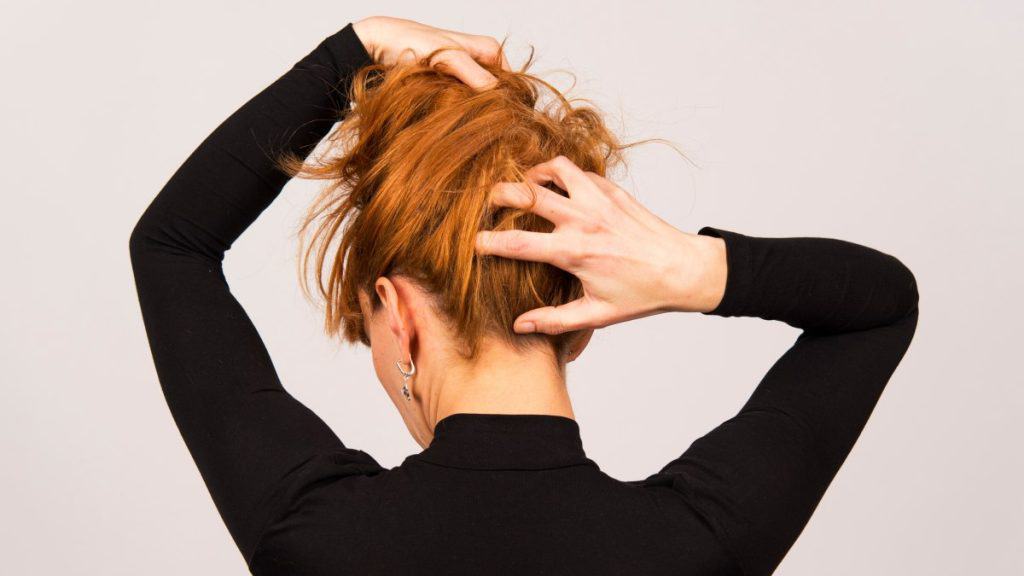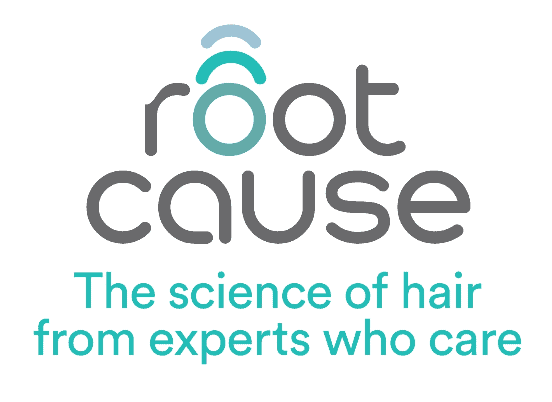A Journey into Hormones and Hair Loss
11.01.22
With an increasing awareness and widespread understanding of the impact of hormones and menopause on female health and wellbeing, there is increasing conversation on the different impacts hormones can have on the body, including the question – can hormones cause hair loss?

The answer is yes.
Hormones can have a potential effect on hair, depending on the individual. The effects can be even more profound for those experiencing early (or surgical) menopause.
Approximately 4,000 women a year in the U.K. undergo surgical menopause because of cancer treatments, preventative surgery, endometriosis, or severe premenstrual dysphoric disorder (PMDD), to give some examples. Unlike natural menopause, hormones are switched off suddenly, and the effects are often even more profound. The Daisy Network is dedicated to providing information and support to women diagnosed with POI/ early menopause and their membership has grown year-on-year.

As Dr Hannah Short, a specialist on Premature Ovarian Insufficiency (POI) and early menopause, comments in relation to the impact on general wellbeing, “Hair loss or hair thinning is a particularly distressing symptom that can really affect your confidence and self-esteem.“
There are different types of hair loss and underlying hormonal causes. Dr Short observes that general thinning of hair all over is the most common condition for POI. Some hormone therapy treatments (usually referred to as HRT) can address the loss of hair, but they can also contribute to it. Getting the balance of hormones correct for an individual is essential. Other contributing factors of hair loss can be thyroid and iron deficiency, so a complete diagnosis is essential.
Hazel Hayden, menopause nurse specialist, refers to this as a jigsaw puzzle where the key ingredients need to be in perfect balance, “and this balance can easily go haywire.”
Dr Sara Gottfried, who writes about food and hormones, also emphasises the importance of hormonal balance, citing facial hair and body hair growth when there is an imbalance of testosterone.
Treating Hormones and Hair Loss
Any consideration to treating hair thinning caused by hormones in early menopause will benefit from a holistic approach to manage this careful, delicate balance which can often take months, if not years, to regulate effectively.
All authors identify diet as performing an important role in supporting hair health, but this can also be dependent again on the individual. Often, food rich in high levels of protein, iron, vitamin D3, vitamin B12, and folate could be recommended; while reducing caffeine and dairy could be given consideration.
Read about hair loss and iron in OUR ARTICLE HERE.

Trichology – the science of hair – can play a key role in supporting those affected by hair loss due to early menopause. We have worked alongside specialist medical practitioners to gather data and knowledge to recommend the best approach. Several of our clients affected by POI/ early menopause and natural peri/menopause have had an initial online hair loss consultation with Root Cause Clinical, and some have also had a genetic consultation – learn more about how we use genetic testing read OUR ARTICLE HERE.
Hair Loss and BRCA Gene
One of our clients was diagnosed with BRCA (breast cancer) gene mutation (commonly better known because of campaigners such as Angelina Jolie). She had surgical menopause for preventative measures, impacting her general wellbeing, including dry skin and eyes, and hair shedding. Following a video consultation and genetic testing, a topical solution of minoxidil and 17-a-estradiol scalp lotion was prescribed. Without the genetic test, a general recommendation of minoxidil would have been given, which would have had some benefit but would not have been as effective as the bespoke compound.

Hair Loss and DHT
Another client had a predisposition to slightly increased gene SRD5A1 activity leading to moderately increased DHT levels. DHT is known as a hair growth inhibitor, and the treatment recommended was a topical anti-androgen known as dutasteride mixed with minoxidil.
Working towards an effective hormonal balance alongside a healthy nutritional diet and lifestyle is vital for any hair loss treatment, and the Root Cause Clinical trichologists will consider this alongside your symptoms.
If you are affected by hair loss or thinning due to hormonal challenges, we can provide a formal clinical diagnosis through an online trichology consultation and, if appropriate, a follow-on genetic test consultation. You will save time and money getting the right solution for your needs.
